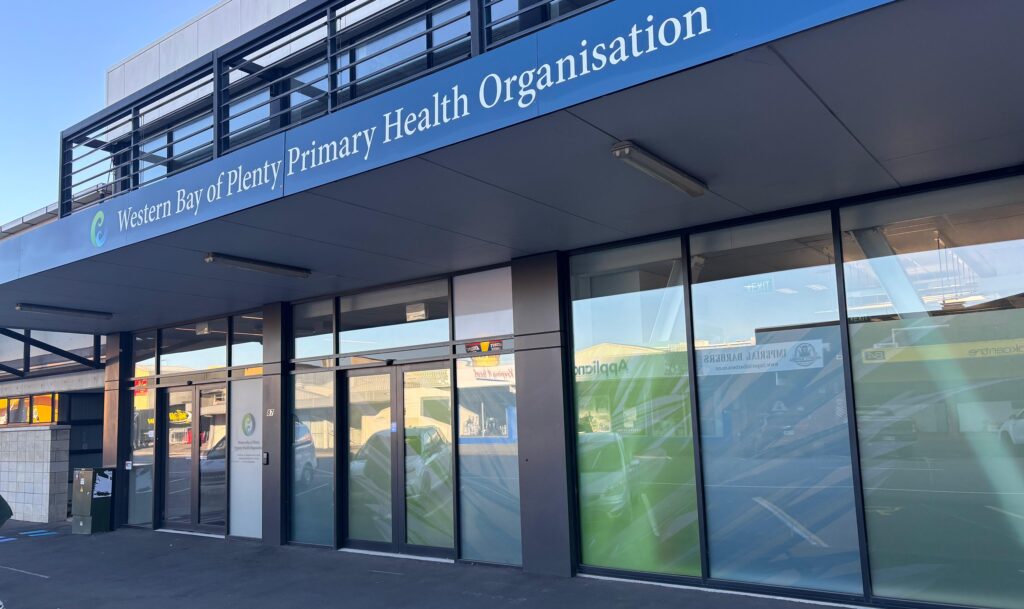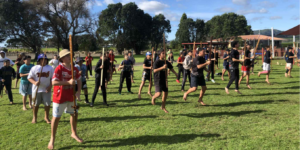WBOP PHO leaders voice questions about timing, transparency, and community impact

A planned move by several local general practices to switch Primary Health Organisation (PHO) affiliation has sparked concern for more than 46,000 people in the Bay of Plenty. Leaders at the Western Bay of Plenty PHO (WBOP PHO) say the move raises urgent questions about continuity of care and whether community well-being remains the priority.
“We’re deeply concerned about what this means for patients,” says Graeme Elvin, Co-chair of WBOP PHO and representative of Ngāti Ranginui iwi. “This shift appears to prioritise profit over patient care. It risks fragmenting services and deepening inequities for Māori and those with complex health needs.”
WBOP PHO was recently informed that Green Cross Health and Third Age Residential Care practices intend to transfer to Eastern Bay Primary Health Alliance (EBPHA), based in Whakatāne. The move comes just ahead of a long-awaited national policy expected to reshape PHO roles and boundaries, prompting further questions about timing, process, and the long-term impacts for local services.
“These decisions were made by the Auckland-based head office, with no input from those delivering care on the ground,” says WBOP PHO Chief Executive Lindsey Webber. “Our focus is on continuity of care and the well-being of our community, and we’re concerned that patients affected by this shift may lose access to services they currently rely on.”
The timing of this change adds further uncertainty, as a national review of how PHOs operate is currently underway. The draft policy, known as the PHO Proposal (formerly the Meso-Level document), is expected to set out new expectations for how PHOs are structured and function. “Decisions made now may need to be revisited in a matter of months,” reminds Webber. “The risk is that practices move, only to have to change again. That kind of disruption doesn’t serve anyone, especially not patients.”
Funding Behind Care
To understand what this change could mean for patients, it helps to know how primary care is funded. Most government funding for general practices comes through a system called capitation — a fixed amount per patient, based on age, sex, and whether they hold a Community Services Card (which lowers the cost of appointments for users). For example, practices get more funding for children, older people, or women who may become pregnant, because they typically need more care.
Some parts of this system also consider ethnicity and levels of poverty and disadvantage of the population enrolled, but only for a small number of targeted services. This is something that’s often criticised within the sector. Capitation funding is supposed to cover essential care of patients, it is passed 100% from PHOs to general practices, and the amount stays the same no matter which PHO practices are affiliated.
While capitation is the same across the country, primary care also receives what is called flexi-funding, extra public money designed to address local health demands and prioritise patients with higher health challenges. This is where PHOs can differ in how they use it. WBOP PHO uses this funding to support several different services. These include, for example, PHO led community dietetic services and outreach nursing services to support cervical and breast screening.
Some of the flexi-funding also helps general practices care for their enrolled population. The higher health needs programme, for example, covers up to eight free or low-cost visits a year for eligible patients. Practices receive these funds as services are used, which helps us direct support where it’s needed and understand the impact on people’s health. WBOP PHO also use this funding to offer free health and wellness services through community providers, such as the Mobile Health Services (HbU) led by Ngāi Te Rangi iwi.
“As a GP, I see every day how important these PHO funded services are for patients and their whānau,” says Dr Dan McIntosh, Co-chair of WBOP PHO. “We choose to invest flexi-funding in services we know make a difference, because we understand what our community needs. When a practice changes PHO, decisions around funding and service delivery may differ. Our concern is whether patient access to these services will be maintained.”
WBOP PHO is a non-profit organisation supporting and delivering health services through general practices, iwi partners, and community providers from Katikati to Whakatāne. We support more than 211,000 enrolled patients — and through wider community programmes, reach up to 270,000 people across the region. “The services we offer aren’t just add-ons, they are part of a system built over years with our local communities,” says Webber. “That kind of support doesn’t automatically move with a contract.” Elvin adds, “Patients deserve to understand what’s changing and why. This isn’t just paperwork, it affects the care people rely on and who gets to benefit from it.”
Patient Rights: Choice, Clarity and Continuity
Patients have the right to choose the general practice and Primary Health Organisation (PHO) they feel best supports their health and well-being. If a practice changes its PHO, patients must be clearly informed and given the opportunity to decide whether to stay with that practice or move to another.
Practices are expected to communicate any changes in a clear and timely way, including through letters, emails, and in-practice notices. This ensures that patients understand what the change means, how it might affect the services they receive, and what options are available to them.
Patients who wish to stay enrolled with their current practice do not need to take any action. However, if at any point they become concerned about changes or would prefer to remain connected to services provided by WBOP PHO, they are welcome to explore other options. Support is available, including information on how to change practices and register with a new one, on our website.
PHO? What is a PHO?
All general practices receiving public funding in Aotearoa New Zealand belong to a Primary Health Organisation (PHO). PHOs are funded by Te Whatu Ora | Health New Zealand to help support primary health care at a community level. When you enrol with a general practice, you’re also enrolled in the PHO that supports that practice. This gives you access to subsidised GP visits, and a range of free and locally tailored services.
Most funding in primary care comes through capitation and flexi-funding, as explained above. Capitation goes directly to general practices, while flexi-funding is managed by PHOs to support local services. In addition, some PHOs hold separate contracts to deliver specific services. This funding is not part of capitation or flexi-funding, it's for services the PHO is directly commissioned to provide. For example, School-Based Health Services, Diabetes and Lifestyle Management Groups or Smoking Cessation programmes, which WBOP PHO delivers in the Western Bay.
WBOP PHO also supports general practices and community providers by offering workforce education and training, back-office services, and tools that help them focus on patient care. We coordinate with other parts of the health system to keep services connected, use data to guide local planning, and work to reduce barriers so everyone has a fair chance at good health.





